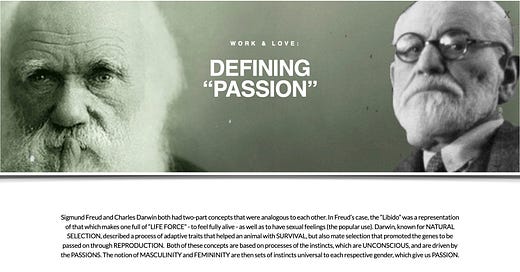SHOW NOTES:
In this conversation, Dr. Paul and Jeremy Fox explore the concept of the triune brain and its relevance to human courtship. They discuss the three phases of courtship—sexual attraction, emotional attraction, and partnership—while emphasizing the role of instincts in these processes. The discussion delves into the nature of masculine instincts, their evolutionary significance, and how cultural expressions of masculinity have persisted across different societies. The conversation also highlights the intersection of Jungian and evolutionary psychology, suggesting that universal human truths are embedded in timeless stories and instincts. In this conversation, Dr. Paul and Jeremy explore the intricate relationship between libido, passion, and the biological instincts of masculinity and femininity. They discuss how these concepts relate to survival and reproduction, the significance of passion in life, and the impact of societal constructs on individual identity. The dialogue delves into the nature of dysthymia as a lack of passion and the importance of recognizing and expressing one's instincts for a fulfilling life.
Get the upgrade to access everything we have on human courtship in the compendium, romantipedia.com:
Takeaways
The triune brain model divides the mind into three areas: reptilian, mammalian, and higher brain.
The reptilian brain governs instincts and unconscious behaviors.
Friendship is essential for a successful relationship.
Instincts are automatic and unconscious, playing a crucial role in survival and reproduction.
Masculine archetypes, such as the warrior and king, persist across cultures.
Cultural expressions of masculinity are influenced by underlying instincts.
Jungian psychology and evolutionary psychology share common themes regarding human nature.
Timeless stories reflect universal human truths and instincts.
Instincts drive emotions and behaviors in relationships.
Understanding instincts can help navigate emotional regulation and relationship dynamics. Libido is not just sexual appetite; it's a life force.
Passion is the driving force behind being alive.
Masculinity and femininity can be defined through passion.
Dysthymia reflects a lack of passion in life.
Instinctual behaviors are deeply rooted in biology.
Cultural expressions of masculinity and femininity can vary.
Rites of passage are essential for personal growth.
Understanding instincts can lead to a fulfilling life.
Expressing one's instincts can lead to recognition and success.
Finding passion is crucial for mental well-being.
Titles
Exploring the Triune Brain in Courtship
The Phases of Human Attraction
Masculine Instincts and Their Evolution
Cultural Expressions of Masculinity
Sound Bites
"It's all about the triune brain."
"Jung's genius is about storytelling."
"That's libido, okay?"
"Passion for life."
"A crime of passion is a death."
"Masculinity is a synonym for passion."
"These are universal instincts."
"You feel as alive as you can feel."
"This was wonderful, per usual."
Chapters
00:00 Introduction to the Triune Brain and Courtship
02:26 Phases of Human Courtship
04:50 Understanding Masculine Instincts
09:37 The Role of Instincts in Evolution
12:35 Cultural Expressions of Masculinity
17:52 The Intersection of Jungian and Evolutionary Psychology
24:09 The Essence of Libido and Life Force
27:07 Passion: The Driving Force of Life
30:36 Masculinity, Femininity, and Instinctual Behavior
35:14 Defining Masculinity and Femininity Through Passion
39:58 Instincts, Rites of Passage, and Personal Growth
43:49 Dysthymia: The Lack of Passion in Life
















Share this post